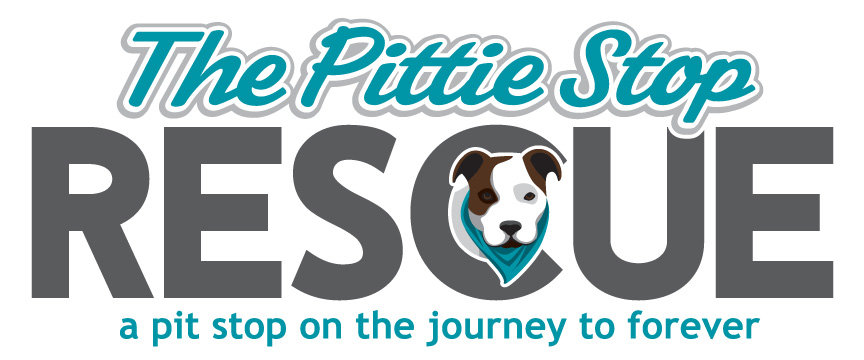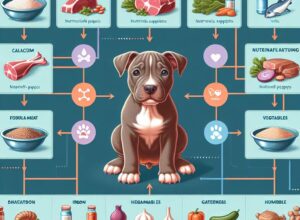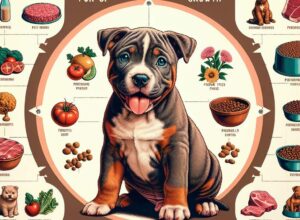
When it comes to our furry friends, we all want to provide the best care possible. It’s not just about love and cuddles; it’s about ensuring they have the right nutrition to grow strong and healthy. For your 50 lb Pitbull puppy, this means creating a diet plan that meets their unique needs. Let’s dive in and set the foundation for a thriving life for your beloved pup.
Key Takeaways
-
A 50 lb Pitbull puppy requires a balanced diet rich in protein, carbohydrates, and fats.
-
Meal portions should be carefully measured to prevent overfeeding and ensure optimal growth.
-
Consistent meal times and a set feeding routine are crucial for your puppy’s health.
-
Hydration is as important as food; always provide fresh water for your Pitbull puppy.
-
Transitioning to adult food should be done gradually when your puppy reaches the appropriate age and weight.
Understanding Your Pitbull Puppy’s Nutritional Needs
Every Pitbull puppy is unique, and their diet must reflect their individual needs. At 50 lbs, your puppy is likely in the midst of their rapid growth phase, where nutrition is critical. A well-balanced diet is key, and it should include:
-
High-quality protein for muscle development
-
Carbohydrates for energy
-
Fats for healthy skin and coat
-
Vitamins and minerals for overall health
Because they’re still growing, puppies need more calories and nutrients than adult dogs. It’s important to feed them food specifically formulated for puppies, which has the right balance of nutrients to support their development.
Selecting the Right Foods for Optimal Growth
Choosing the right food for your Pitbull puppy can be daunting with so many options available. Look for puppy food that lists real meat as the first ingredient. Avoid foods with fillers and artificial additives that offer little nutritional value. Whole foods like fruits and vegetables can provide natural sources of vitamins and minerals.
Meal Timing and Portion Control Strategies
For a 50 lb Pitbull puppy, it’s not just what they eat but how much and how often. Puppies have small stomachs and high energy needs, so they require frequent meals. Here’s a simple guideline:
-
Under 6 months old: 4 meals a day
-
6 months to 1 year: 3 meals a day
-
Over 1 year: 2 meals a day
Stick to these meal times and resist the urge to free-feed, which can lead to obesity. Measure out each portion based on the feeding guide on your puppy food’s label, adjusting for your puppy’s activity level and growth needs.
High-Quality Protein: Building Strong Muscles
Protein is the building block of muscle, and for a breed like Pitbulls, known for their strength, it’s essential. Your puppy’s diet should be rich in proteins from sources like chicken, beef, fish, or lamb. But remember, more protein isn’t always better. It’s about the right balance.
The Best Protein Sources for Your Pitbull Puppy
To ensure your Pitbull puppy gets the best, include a variety of protein sources in their diet. This can help prevent allergies and provide a range of amino acids. Here are some top protein sources:
-
Chicken: Lean and easily digestible
-
Beef: Rich in iron and B vitamins
-
Fish: Full of omega-3 fatty acids for brain health
-
Lamb: A good alternative for dogs sensitive to chicken or beef
How Much Protein Is Just Right?
The amount of protein your Pitbull puppy needs can vary, but a general rule is that puppy food should contain at least 22% protein. However, always check with your vet to tailor your puppy’s diet to their specific needs.
Healthy Carbs to Keep Your Puppy On the Go
Carbohydrates are an essential part of your Pitbull puppy’s diet, providing them with the energy they need to play and grow. While dogs don’t require carbs in large quantities, healthy sources like brown rice, sweet potatoes, and oats can be beneficial. These complex carbs break down slowly, giving your pup a steady stream of energy throughout the day.
Essential Fats for a Shiny Coat and Healthy Brain
Fats are not the enemy; they’re a vital energy source and necessary for your Pitbull puppy’s brain development and skin health. Look for foods with omega-3 and omega-6 fatty acids. Fish oil and flaxseed are excellent sources of these essential fats. Remember, the key is balance—too much fat can lead to weight gain, while too little can result in a dull coat and dry skin.
Feeding Schedule: Establishing a Routine
Consistency is crucial when it comes to feeding your Pitbull puppy. A routine helps regulate their digestion and keeps their metabolism steady. It also helps with house training, as puppies usually need to relieve themselves after eating. So, set a schedule and stick to it as closely as possible.
Creating Consistency with Set Meal Times
Determine a feeding schedule that fits your daily routine and your puppy’s needs. For instance, you might feed them at 7 AM, noon, 5 PM, and a smaller meal at 8 PM when they’re under six months. As they grow, you’ll reduce the number of meals but increase the portion size.
Importance of Consistent Feeding to Avoid Overfeeding
Overfeeding is a common issue that can lead to obesity and health problems. By having a consistent feeding schedule and measuring out meals, you can prevent overfeeding. If you’re ever unsure about portion sizes, consult with your vet—they can provide guidance based on your puppy’s specific needs.
Hydration: Keeping Your Pitbull Puppy Hydrated
Water is just as important as food for your Pitbull puppy. Always provide access to clean, fresh water. Puppies can dehydrate quickly, especially after playtime or during hot weather, so keep an eye on their water bowl and refill it as needed.
Water Intake Recommendations
A good rule of thumb is that puppies need about a half cup of water every two hours. Of course, this amount can vary based on activity level and the temperature. Monitor your puppy to ensure they’re drinking enough but not too much, as excessive water intake can be a sign of other health issues.
Recognizing Signs of Dehydration
Dehydration can be dangerous for puppies. Look out for signs like dry gums, lethargy, and a loss of skin elasticity. If you suspect your puppy is dehydrated, offer them water immediately and contact your vet if there’s no improvement.
Vitamins and Supplements: Filling the Nutritional Gaps
While a well-balanced diet should provide all the necessary nutrients for your Pitbull puppy, there are situations where supplements can be beneficial. For example, if your puppy has a specific health issue or if you’re feeding them a homemade diet, supplements can help fill any nutritional gaps.
When to Consider Supplements for Your Puppy
Before adding any supplements to your puppy’s diet, talk to your vet. They can recommend supplements based on your puppy’s health, diet, and lifestyle. Common supplements for puppies include fish oil for healthy skin and coat, probiotics for digestion, and glucosamine for joint health.
Natural Alternatives to Processed Supplements
Natural foods can often provide the nutrients that supplements offer. For example, plain yogurt can be a source of probiotics, and fresh fish can provide omega-3 fatty acids. Whenever possible, opt for these natural sources over processed supplements.
Common Dietary Pitfalls to Avoid
There are several dietary pitfalls to be aware of when feeding your Pitbull puppy. These include over-reliance on treats, feeding table scraps, and not adjusting the diet as your puppy grows. Treats should be used sparingly and not as a substitute for a well-balanced meal.
While it’s tempting to share your food with your puppy, many human foods are unhealthy or even dangerous for dogs. Foods like chocolate, grapes, and onions can be toxic to dogs, so it’s best to avoid feeding them human food altogether.
Identifying and Avoiding Unhealthy Treats
When choosing treats for your puppy, read the labels carefully. Avoid treats with high sugar content, artificial colors, or preservatives. Instead, opt for healthy alternatives like small pieces of carrot or apple (without the seeds), or specially formulated puppy treats that support dental health and bone growth.
Managing Food Allergies and Sensitivities
Just like humans, puppies can have food allergies and sensitivities that can affect their health and well-being. Common signs of food allergies in puppies include itching, digestive upset, and ear infections. If you notice any of these symptoms, it’s important to consult with your vet. They may recommend an elimination diet to determine the cause of the allergy.
Once the allergen is identified, you’ll need to read food labels carefully to avoid it. There are many hypoallergenic puppy foods on the market that are free from common allergens like chicken, beef, corn, wheat, and soy.
Transitioning to Adult Food: When and How
As your Pitbull puppy grows, there will come a time to transition them to adult food. This is a crucial step in their dietary journey and should be handled with care to avoid upsetting their stomach.
The right time to switch from puppy to adult food varies. Most puppies are ready to transition when they reach 80-90% of their expected adult weight. For Pitbulls, this is typically around 12 to 14 months of age, but your vet can give you a more specific timeframe based on your puppy’s growth and development.
Recognizing Milestones for Dietary Changes
“Pay attention to your Pitbull puppy’s growth rate and body condition. If they’re getting too chunky or still look a bit thin, these are signs that you may need to adjust their diet. Always consult with your vet before making any significant changes to your puppy’s diet.”
Monitoring your puppy’s weight and body condition score (BCS) is the best way to determine if they’re ready for adult food. A BCS is a way to measure body fat and muscle, and your vet can help you learn how to assess it at home.
Another indicator is your puppy’s energy levels. If they seem to be leveling out and they’re not growing as rapidly, it might be time to consider the switch to adult food.
Lastly, look at their overall health and vitality. A shiny coat, bright eyes, and good digestion are signs that your puppy is thriving on their current diet, and it might be time to start thinking about the transition to adult food.
Tips for a Smooth Transition
When it’s time to switch to adult food, do it gradually over a period of 7-10 days. Start by mixing a small amount of adult food with their puppy food, and slowly increase the proportion of adult food while decreasing the puppy food. This helps prevent digestive upset and allows your puppy’s system to adjust to the new food.
Frequently Asked Questions (FAQ)
As a pet owner, you’re bound to have questions about your Pitbull puppy’s diet and nutrition. Here are some answers to commonly asked questions:
-
How often should I feed my 50 lb Pitbull puppy?
-
Can my Pitbull puppy eat adult dog food?
-
What should I do if my puppy is a picky eater?
-
Are there any human foods that are safe for my puppy?
-
How can I tell if my puppy is at a healthy weight?
It’s always best to consult with your vet for advice specific to your puppy’s needs. They can provide guidance on feeding schedules, appropriate food choices, and how to handle picky eaters.
How often should I feed my 50 lb Pitbull puppy?
At 50 lbs, your Pitbull puppy should be eating 2-3 meals a day. It’s important to establish a routine and stick to it, as consistency is key for your puppy’s digestive health and overall well-being.
Can my Pitbull puppy eat adult dog food?
Your Pitbull puppy should not eat adult dog food until they are ready to transition, which is usually around 12 to 14 months of age. Puppy food is specifically formulated to support their growth and development, so it’s important to wait until the right time to switch.
What should I do if my puppy is a picky eater?
If your Pitbull puppy is a picky eater, try adding a little bit of wet food to their kibble, or use a puppy-safe food topper to enhance the flavor. Always ensure the food is fresh and at room temperature, as some puppies might not like cold food. If the issue persists, consult with your vet to rule out any underlying health problems.
Are there any human foods that are safe for my puppy?
Yes, there are some human foods that are safe for your puppy in moderation. These include plain cooked meats without any seasoning, certain fruits and vegetables like carrots and apples (without the seeds), and plain cooked rice or pasta. Always introduce new foods gradually and in small amounts to prevent digestive upset.
How can I tell if my puppy is at a healthy weight?
You can tell if your puppy is at a healthy weight by feeling their ribs and looking at their waist. You should be able to feel their ribs without a thick layer of fat over them, and when looking down at your puppy from above, you should see a noticeable waist. If you’re unsure, your vet can help you assess your puppy’s body condition score and determine if they’re at a healthy weight.
In conclusion, feeding your 50 lb Pitbull puppy a balanced diet is crucial for their growth and development. Remember to provide high-quality protein, healthy carbohydrates and fats, and plenty of fresh water. Establish a consistent feeding schedule, be mindful of portion sizes, and don’t forget to consult with your vet regularly. With the right nutrition and care, your Pitbull puppy will grow up to be a strong, healthy, and happy dog.



